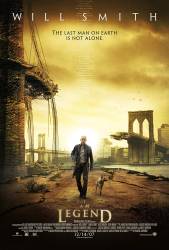
Question: Did just New York get contaminated or did the rest of the world get infected?
Answer: During the evacuation, it seems that only Manhattan is infected, or if there are infections elsewhere, it is not known by the government yet. Sometime in January 2010, things get worse if you follow the posters in the movie.
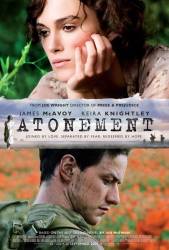
Question: Robbie's soldier friend (I think his name was Nettle) was so calm and compassionate with him. He said that the hiding place was in reality the beach cottage and he protects Robbie from the angry soldiers. Did he do that because he saw how sick he is and probably knew, deep inside, that Robbie will not survive the night until the evacuation, and wanted to give him a peaceful end? Why does he take Robbie's letters and pictures with him?
Answer: I think he realizes that Robbie most likely won't make it. He takes the letters so that he can get them back to his loved ones. He probably knows that there is a last goodbye to someone (his girl/his mother) in them. And, if nothing else, even if his body doesn't make it back to them, they have a piece of him to cherish.
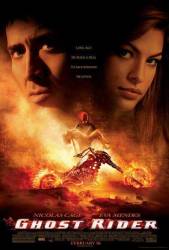
Question: How long does Ghost Rider's penance stare work for?
Answer: The movie doesn't show how long the effects of the Penance Stare last. I have Morbius #1, in which Ghost Rider uses his Penance Stare on Morbius, who recovers from it relatively quickly. I don't know definitively because I haven't read very many Ghost Rider comics, but the duration of the effects could vary depending on how much remorse the person already felt for their past sins, or how much their own super powers allow them to recover from it. From what I understand, the Penance Stare doesn't work on the Punisher, as he feels no remorse for the people he's killed. It also had no effect on Deadpool, as his greatest victim is himself and it actually caused Ghost Rider to revert to his human form when he tried it on Deadpool.
Answer: It depends on the person. The penance stare is used to torture the victim into reliving every bit of mean and sinful behaviour in their life time. So if the victim is older and committed more sinful acts, it will last longer than say a 20 year old who hasn't committed that many acts.
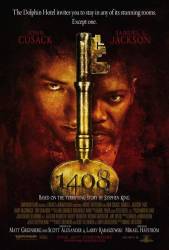
Question: In the office scene where Mike and Olin are speaking of all the deaths that have occurred in room 1408 they say a specific number for each type of death. I added all the numbers up and got 43 but Olin said there had been 56 deaths total. Is my addition wrong or was is it a coincidence that there were 13 deaths they didn't speak of?
Answer: After they recite the types of deaths and the number attributed to each one Mr. Olin also says that there have also been natural causes of death as well which surprises Mike. The natural causes of death add up to the other 13 deaths.
First, I don't have a great memory - I had to re-watch the movie, writing down the numbers: 7 jumpers, 4 overdoses, 5 hangings, 3 mutilations, 2 strangulation's plus 22 natural deaths - I get 43 total, but later we hear of a man that drowned in his chicken soup... which fits none of the categories mentioned including natural. There is also mention of heart attacks, which I don't know if you would categorizes these as natural considering the circumstances. That is to say, they just didn't detail all 56 deaths. The book might, and mind you a book made into a movie is always too fast paced with so much detail crammed into 2 hours... there is really no time to digest all the material. I'm guessing this is a much better read. Also this movie PRE-supposes that a person understands a lot of things... I had to look the stuff up after the first viewing... then came to this site (as a means of looking some stuff up). Here's my low down - after the fast forward second viewing, literally taking notes: 1. The room is not haunted - something in the room is evil; this is stated when the hotel owner has conversations with writer just outside of the office on route to the elevator 2. The writer expresses this is : the seventh circle - the 7th circle is where those that committed the following violations are punished: a. Crimes against neighbours b. crimes against self >suicide c. Crimes against God, Art (grand daughter of God) and nature 3. The writer has pleaded Guilty as charged in the hotel managers office to charges of: believing in nothing (this would be God - and he states so later) and believing in no-one but himself 4. The writer opens the bible - and the page falls to Nathans Parable -2 Samuel 12 ==> had to look this one up - this is about being judged - mostly about a man who kills another and takes his wife - it's about judging yourself and paying for your sins. In this story the wife brings forth a child that god strikes down with sickness and the child dies... among other things. 5. It is generally believed that there are 3 things that allow for better mind control - or mind opening/bending experiences: a. Sugar b. Alcohol c. Drugs ==> he was given a bottle of alcohol which he consumes as well as chocolate squares on the bed - presumably the evil force has provided these to allow better mind control 6. All the pictures show some form of evil: the Schooner lost at sea, should we presume an act of evil in addition to potential future acts of cannibalism? The Hunt: which is where I believe the hotel owner originated from: escaping from a pore in the picture - he was the hunted (no glass covering on the picture) and he provided the alcohol - he also tries to stop the writer from taking the room, saying he doesn't have to do this (punish himself) and/or the manager senses the end of the room and potentially his existence Lastly the old women reading to the three children... I just can't make this one fit...which is actually when I started to review the relevance to evil there. The writer says the children are deranged...? 7. The demons all originate from the pictures - I think; the manager of the hotel, the knife wielding woman (schooner) . I'm unsure about the guy in the vent. That is to say, the pictures have brought the evil to the room; and the room has become a room where those who should be punished in the 7th circle are. 8. To prove the punishment room theory: in the file folder, as the writer approaches the room 408 - the notes indicate a man with the notation that: his brother was eaten by wolves on the Connecticut Turnpike - I'm guessing there was an act of cannibalism there. 9. Further to prove the punishment room theory - acts against art are really usury and charging interest (loan shark style - high rates to those that are desperate) - we see a business man jump - which later appears to be the man from the newspaper article that says: Dec. 06, 1938 Chicago factory owner leaps from bridge - stating Financial issues Ultimately this room is about judging yourself, deciding your own punishment and the evil forces dispensing the punishment. Think about the maid that only blinds herself with scissors, and the writer who has presumably already paid for most of his sins (daughter dies) but is still forced to suffer heat, cold, drowning, mental illness, isolation etc.
Answer: Olin simply did not list all of the causes/cases. He mentions the causes of 21 deaths before Mike cuts him off. He then mentions the 22 natural death cases. By no coincidence, the number of cases mentioned, 43, subtracted from the number of deaths Olin says actually occurred, 56, is 13. Afterwards, he reveals one more cause attributed to the unmentioned 13 deaths: drowning.
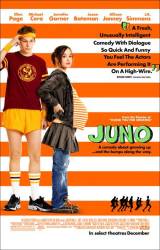
Question: What does the note Juno writes to Vanessa say? I could never read it.
Answer: Juno tells Vanessa that she's still willing to go through with the adoption if Vanessa is also willing ("If you're still in, I'm still in") - knowing that Vanessa will be a divorced single mom. She knows how much the baby means to Vanessa.
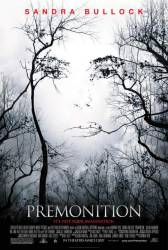
Question: If Sandra is at the scene of the accident, what is the purpose of the police officer showing up at the door to tell her Jim is dead?
Answer: It's fairly obvious that this film's theme is that knowing the future changes it. I.e. knowing there would be an accident, she travelled there and caused an accident.
Answer: Possibly she left the scene before the police arrived, so they did not know she had been there.
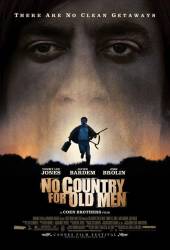
Question: How did Chigurh get his gun back? After the shootout in the hotel, when Moss is first hit, occupies the car and then shoots Chigurh, Chigurh disappears and Moss takes his gun. Moss then drives to the border with the car, and presumably dumps them somewhere or leaves them in the car. Well, when Chigurh later kills Carson Welles, he has his gun back. How did he get it back? Did he find the car, if it was in there? Did he buy a new one?
Answer: It was a different gun. He kills Carson with a shotgun, while the gun Moss picks up is a silenced SMG by the looks of it.
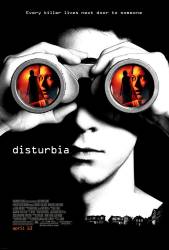
Question: When Mr Turner notices Kale, it is presumed that he let his victim go. But then later in the film, it comes to the viewer's knowledge that the woman never left. How could Mr Turner fake that?
Chosen answer: When Kale goes in Mr. Turner's house to find his mom, he finds a red wig and heels (when he saw the girl leaving Mr. Turner's house, that was Mr. Turner wearing the wig and taking her car to make it seemed like she had left safely).
Disagree. No way a grown man like that could fit into the dress, or be convincing.
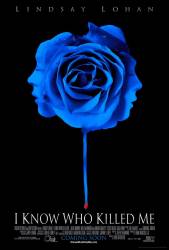
Question: What's the symbolism behind all the blue in the movie?
Answer: Blue's the color for Aubrey's character, and the red one's for Dakota. If you watch the movie carefully you can notice that Aubrey wears blue clothes the most of the time while Dakota wears red ones. So it's just to represent the diferent characters and make the movie obvious.
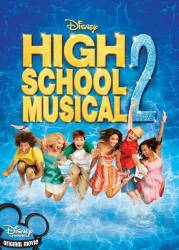
Question: Is it true that the song "I Don't Dance" was specifically written for Corbin and Lucas because they both auditioned for the role of Ryan, but since Lucas was a better dancer, he got the part?
Answer: It is just a coincidence. Corbin's character is all about sports and feels that Ryan is not in the same league when it comes to baseball (pardon the pun). Ryan, on the other hand, wants to prove that dancing takes just as much athleticism and dedication as sports therefore the game and song are a showdown between two cliques you generally find in high school, the athletes and the drama club.
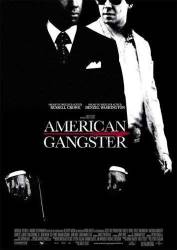
Question: What was the whole thing of not wanting to turn in the $987,000 they found in the car because it would make them appear untrustworthy? Why would all cops distrust them for handing it in? I get that dirty cops would be annoyed but when they were counting it in the precinct, every cop was drawing them daggers.
Answer: The idea is if cops wouldn't take a million dollars for themselves, free and clear without risk, they are impeccably honest. Therefore, they wouldn't accept bribes and probably not hold still for shakedowns or payoffs. They wouldn't cover up drug or weapon planting and would testify against crooked cops.
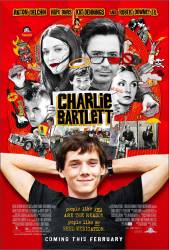
Question: What exactly is wrong with cameras? It's a public area. They have no privacy either way.
Answer: It is debatable if there is anything wrong with using cameras, but I can think of some possible answers to "what exactly is wrong with using cameras" at a school yard. Cameras symbolize authority over and oppression of students by the principal (and other authority figures). Cameras are indicative of a lack of trust of ALL students, but usually there is only a small percentage of trouble-makers. The use of cameras unjustly undermines the maturity of most students and makes the students resent the school authority figures. Cameras make the assumption that all the students are engaging (or might engage) in unacceptable behavior, which is offensive to the majority of students who follow the rules. Cameras are contrary to our value of "freedom" and that Uncle Sam does not have a right to constantly monitor citizens. People should not be videotaped in a free society if they have done nothing wrong. Many people simply do not like being videotaped. Cameras can record embarrassing acts.
That doesn't answer the question.
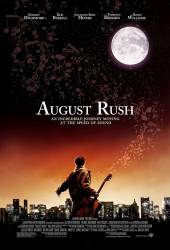
Question: What was the significance of showing us Lyla dropping her necklace outside the hotel? Louis didn't pick it up did he?
Answer: I think it was a necklace she was given by her father, and it breaking shows that she is breaking away from him. Her father picks it up, not Louis.
If her father picks it up, how is Wizard wearing it later in film?
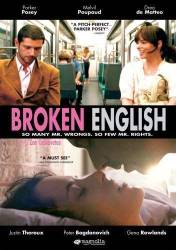
Question: Nora goes out with Julian. She asks him where he wants to eat. He doesn't speak. Nora stares at him over sunglasses and says, "Food. Manja." What does manja mean?
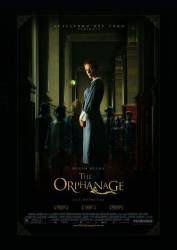
Question: The game they play near the start (the knock on wood game) seems pretty interesting. Is the point of it not to get caught moving or is there another goal? Also, can someone help me with the Spanish translation? I can't hear what the Spanish for Knock on Wood is. Thanks.
Chosen answer: It's a Spanish version of Red Light, Green Light where you'd try not to get caught moving. I haven't watched the film in a while but I believe she says "Uno, dos, tres, toca la pared". Hope that helps!
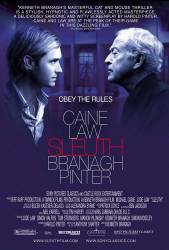
Question: I have to admit that I don't know if this can be called a 'mistake', so I just post is as a question also to gauge the response from others who may have seen the movie. The 'trick' the movie's second act is based on, with Jude Law showing back at the novelist's house posing as an investigator... Would ANYONE be fooled by this? I don't pinpoint an obvious flaw in the make-up that maybe would be a Character or Continuity mistake, but seriously; is there ANYONE who wouldn't see through that silly disguise, especially considering that it's the only other visitor the guy had in days, that he is obsessed with him, Law comes to see Caine about his 'own' disappearance, which as opposed to the audience Caine knows is fake and left him open to at least a prank or revenge. I mean, they are up close for so long during this, both times, it is such a wild stretch of the suspension of disbelief. I was truly convinced Caine had seen through him right away and was playing with him, but shockingly, that was not the case. (00:02:30 - 00:39:40)
Answer: Sleuth was originally produced as a stage play written by Anthony Shaeffer. In that medium, the surprise reveal was more plausible. The 1972 movie, starring Michael Caine in the younger role, was relatively more successful in deceiving the audience, though, it too, was fairly obvious. The 2007 version, directed by Kenneth Branagh, seemed to assume that most of the audience already knew about the plot twist and, as it comes midway through the story, it appears the movie instead focused on the psychological aspects of the cat-and-mouse relationship between the two characters.
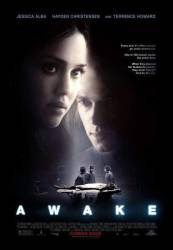
Question: If everyone involved in the scheme knew that Clayton's mother would get in the way and really didn't want to let Jack do the surgery why did they call her to the hospital? Yes she's on the call sheet but couldn't they erase her name of the sheet to make the surgery and scheme go smoother? I mean it's $100 million dollars at stake and they have had a year to plan everything out.
Chosen answer: They still had to follow hospital protocol, they couldn't risk getting into trouble over a technicality at such a critical stage of their plan. Since he had just married Jessica Alba, her rights as his wife now superseded those of his mother, and so as far as the scheming group knew, the mother was essentially powerless to make decisions for her son. They had no way of knowing she would go to the lengths that she did to save him.
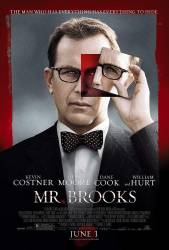
Question: What were the last lines of the movie?
Answer: Marshall's line was, "Why do you fight it so hard, Earl?" Earl Brook's was, "God, grant me the serenity to accept the things I cannot change, courage to change the things I can, and wisdom to know the difference. Living one day at a time and enjoying one moment at a time, accepting hardships as the pathway to peace. Taking, as He did, this sinful world as it is and not as I would have it, trusting that He will make all things right if I surrender to His will, that I may be reasonably happy in this life, and supremely happy with Him forever in the next. Amen."
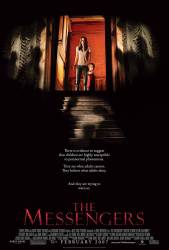
Question: Why does the man at the beginning want to buy the house so badly? The movie never explains it.
Answer: No, that is not the answer and nothing to support that conclusion.
Answer: For its real estate value, the house has a reputation for being haunted and Dylan McDermott, a city boy wanting to be a farm, would fail.
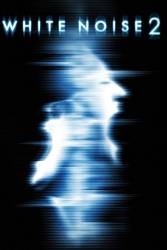
Question: WARNING: BIG PLOT SPOILER - I did not completely understand what the devil had to do with the saved people killing other people the third day after they had been saved. According to the plot, "tria mera" is Greek for "third day". The question was "if Jesus came back to life at the third day, what happened with the devil?" That was supposed to explain the killings. I hope someone can give me further clarification.
Chosen answer: The third day (according to the movie) after someone uses the white light to save someone, is when the devil can step in and try to cause chaos. They did try to explain this in the movie, though it didn't make a lot of sense for anyone with any idea about the subject.
Answer: The whole world is infected.
Tailkinker ★